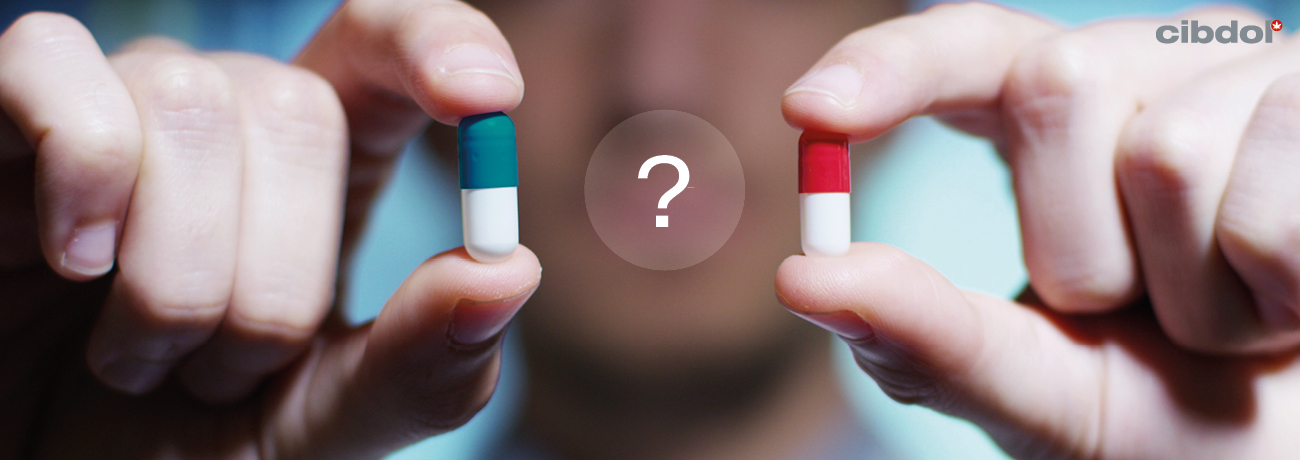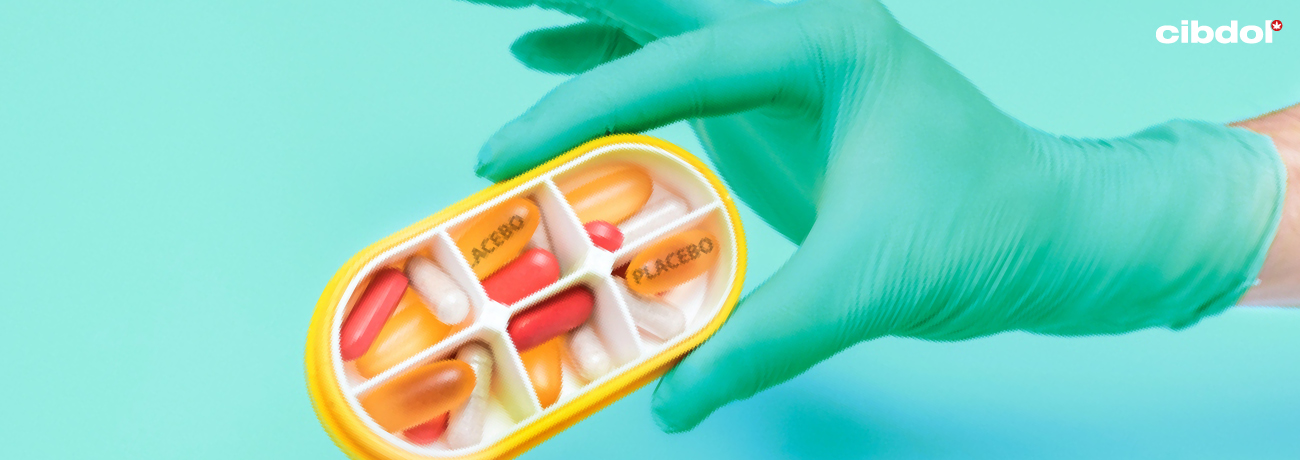Is CBD A Placebo?

Does CBD produce physiological changes within the body? Or does it simply work as a placebo that “tricks” us into feeling some effect?
Several scientific studies have proven that CBD does indeed produce some very real and measurable changes. Carefully designed studies have tested CBD in humans to investigate the cannabinoid’s effect on numerous conditions. As well as testing the molecule for its therapeutic efficacy, research has compared the effects of CBD against that of a placebo.
Before we delve into some of this research, let’s take a closer look at what a placebo actually is.
What is the placebo effect?
By definition, the placebo effect is a beneficial effect produced by an ineffective drug. The outcome cannot be attributed to the treatment itself, but to the patient's belief in the effectiveness of the treatment.
The mind possesses outstanding power. It can even convince us that an ineffective or “false” treatment actually works. Occasionally, if a person truly believes that what they have ingested can heal an ailment, their symptoms may disappear.
This sounds extreme, but science fully recognises the power of the placebo effect. The phenomenon cannot cause significant changes in conditions such as tumours and high cholesterol, but it can produce positive results in terms of pain, sleep disorders, menopause, irritable bowel syndrome, and depression.
A leading theory behind how the placebo effect works revolves around patient expectation. If an individual truly believes they are taking effective medication, their own internal chemistry might come into play and produce similar effects.
CBD offers more than a placebo effect

Researchers have discovered that CBD produces a range of physiological changes and effects. But how do we know these aren’t the result of mere placebo?
Placebo-controlled trials help distinguish between the true effects of a substance versus a placebo. These studies typically involve two groups: one that receives the substance (experimental group) and one that receives a fake version (placebo group).
Double-blind, placebo-controlled studies take things a step further. In these studies, neither the patient nor the researchers know which group receives the substance and which receives the placebo. This helps to remove as much bias as possible.
We know CBD offers more than a placebo effect because researchers have exposed the cannabinoid to these scientific measures before. For example, a randomised, double-blind, placebo-controlled trial[1] from 2018 tested the effects of CBD in patients with seizures. Results showed the CBD group to experience a much more significant reduction in monthly drop seizure frequency than the placebo group.
Additionally, a double-blind trial[2] published in the Journal of Psychopharmacology investigated the effects of cannabidiol in patients with Parkinson’s disease. The CBD group experienced a notable difference in quality of life and well-being compared to the placebo group.
Another double-blind, placebo-controlled study[3] examined the efficacy of a CBD-rich botanical extract in the symptomatic treatment of ulcerative colitis. The CBD group was found to experience better quality of life outcomes than the placebo group.
More research is needed
Although such well-designed studies are few and far between in regards to CBD, many more will emerge in the near future. This research gives us a glimpse into the effects of CBD versus placebo, with results indicating the cannabinoid produces tangible effects.
[1] Thiele, E. A., Marsh, E. D., French, J. A., Mazurkiewicz-Beldzinska, M., Benbadis, S. R., Joshi, C., Lyons, P. D., Taylor, A., Roberts, C., & Sommerville, K. (2018, March 17). Cannabidiol in patients with seizures associated with Lennox-Gastaut syndrome (GWPCARE4): a randomised, double-blind, placebo-controlled phase 3 trial. ScienceDirect. https://www.sciencedirect.com/science/article/abs/pii/S0140673618301363 [Source]
[2] Chagas, M. H., Zuardi, A. W., Tumas, V., Pena-Pereira, M. A., Sobreira, E. T., Bergamaschi, M. M., dos Santos, A. C., Teixeira, A. L., Hallak, J., & Crippa, J. A. (2014, September 18). Effects of cannabidiol in the treatment of patients with Parkinson’s disease: An exploratory double-blind trial. SAGE Journals. https://journals.sagepub.com/doi/abs/10.1177/0269881114550355 [Source]
[3] Irving, P. M., Iqbal, T., Nwokolo, C., Subramanian, S., Bloom, S., Prasad, N., Hart, A., Murray, C., Lindsay, J. O., Taylor, A., Barron, R., & Wright, S. (2018, March 10). A Randomized, Double-blind, Placebo-controlled, Parallel-group, Pilot Study of Cannabidiol-rich Botanical Extract in the Symptomatic Treatment of Ulcerative Colitis. Inflammatory Bowel Diseases. https://academic.oup.com/ibdjournal/article/24/4/714/4925788 [Source]
[1] Thiele, E. A., Marsh, E. D., French, J. A., Mazurkiewicz-Beldzinska, M., Benbadis, S. R., Joshi, C., Lyons, P. D., Taylor, A., Roberts, C., & Sommerville, K. (2018, March 17). Cannabidiol in patients with seizures associated with Lennox-Gastaut syndrome (GWPCARE4): a randomised, double-blind, placebo-controlled phase 3 trial. ScienceDirect. https://www.sciencedirect.com/science/article/abs/pii/S0140673618301363 [Source]
[2] Chagas, M. H., Zuardi, A. W., Tumas, V., Pena-Pereira, M. A., Sobreira, E. T., Bergamaschi, M. M., dos Santos, A. C., Teixeira, A. L., Hallak, J., & Crippa, J. A. (2014, September 18). Effects of cannabidiol in the treatment of patients with Parkinson’s disease: An exploratory double-blind trial. SAGE Journals. https://journals.sagepub.com/doi/abs/10.1177/0269881114550355 [Source]
[3] Irving, P. M., Iqbal, T., Nwokolo, C., Subramanian, S., Bloom, S., Prasad, N., Hart, A., Murray, C., Lindsay, J. O., Taylor, A., Barron, R., & Wright, S. (2018, March 10). A Randomized, Double-blind, Placebo-controlled, Parallel-group, Pilot Study of Cannabidiol-rich Botanical Extract in the Symptomatic Treatment of Ulcerative Colitis. Inflammatory Bowel Diseases. https://academic.oup.com/ibdjournal/article/24/4/714/4925788 [Source]







